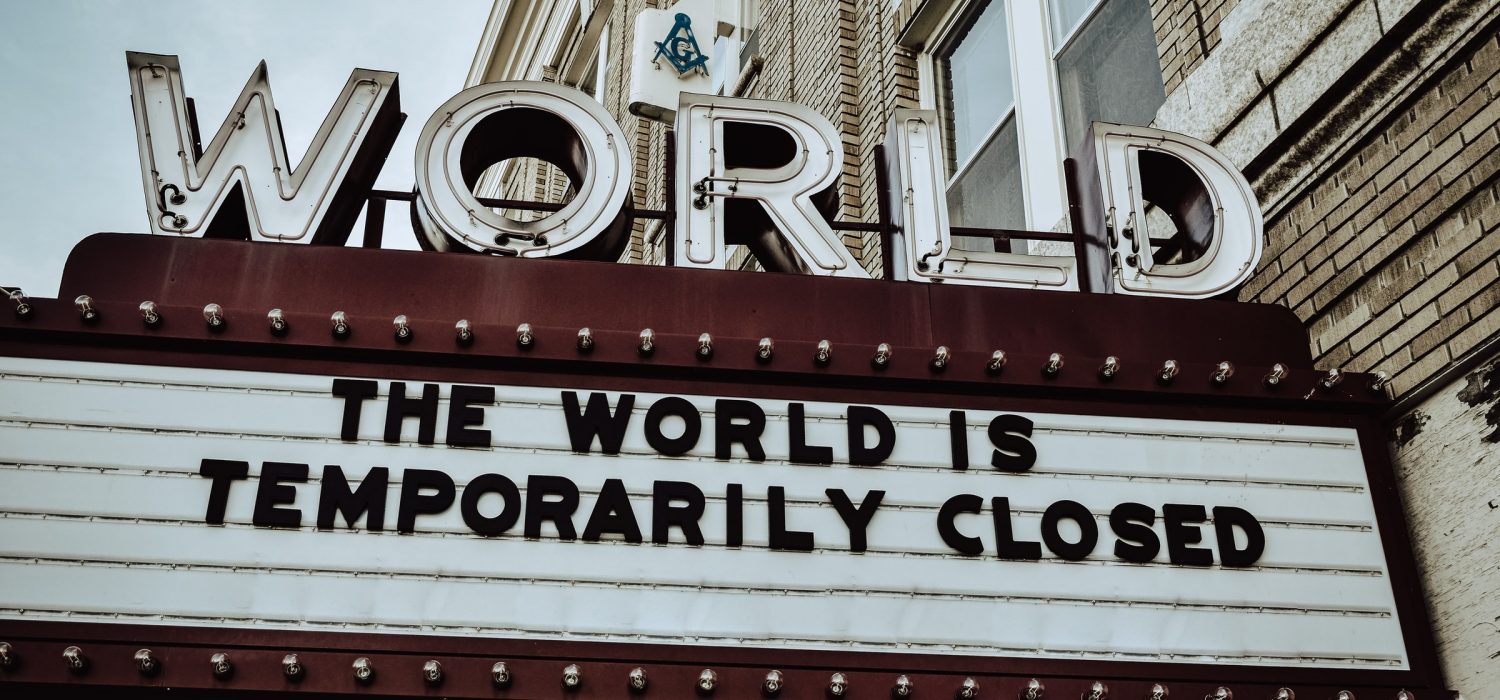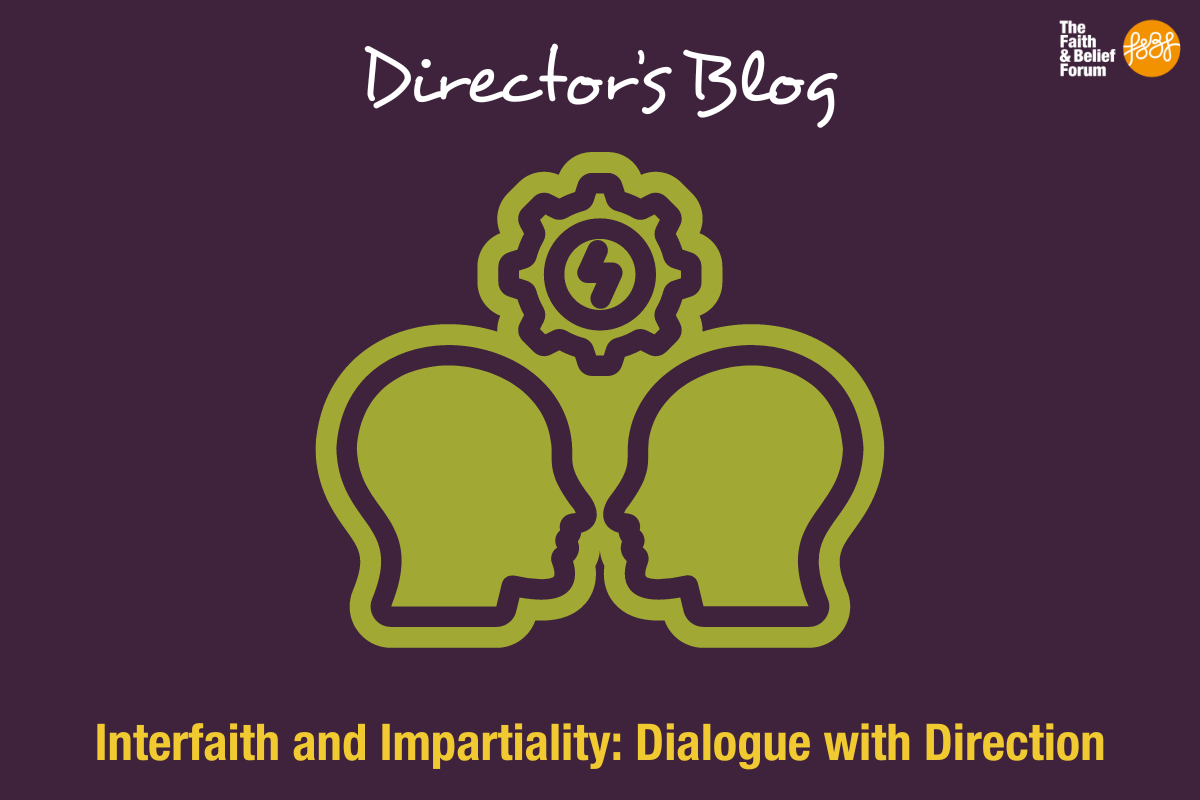
Challenging Faith Based Hate: True Stories
16 / 02 / 24
Menu

28 / 05 / 20

By Phil Champain, Director of the Faith & Belief Forum
Like any crisis, this pandemic has tested the resilience of our communities and society. It has shown the stark reality that those we rely on at times of need are the people who take care of our basic needs – health sector professionals, food producers and distributors, public transport workers, people who provide spiritual and moral guidance, and of course those working to find solutions.
As our global economy has ground pretty much to a halt, it is these services that have kept going. Perhaps some of the positives hiding in the silver lining of this tragedy are not that surprising. The natural world has taken a deep, thankful breath as pollution rates have dropped; the conversation about societal values has been given a positive boost; we have been forced to slow and reflect; and we have discovered the reach and power of online communication.
However, the adverse impacts of the pandemic have yet to bottom out. People continue to die of the virus; there may well be a second wave; a significant proportion of our elders have been lost prematurely; BAME communities have lost significantly more lives than non-BAME communities; some are already taking advantage of the crisis to strengthen racist and divisive narratives; those without access to online technology have dropped further away from its benefits; domestic violence has surged as families have struggled to cope; and many remain shielded in depression-inducing isolation.
It will not be ‘back to normal’ for some time, if ever. What will this mean for those working in interfaith? Will there remain the same appetite for our work in the face of the huge challenges we will face to rebuild and take care of our communities? Will faith & belief mean more or less? Will we be physically able to provide the encounter experiences that are so central to what we do? There are no clear answers to these questions, but it is important to start the conversation.
F&BF’s Strategic Outlook 2018-21 highlights five interrelated factors that influence the health of relations between people of different faiths and beliefs – the media, demographics, leadership, safety and fairness. It’s interesting to observe that during the crisis, stories of mutual aid and heroism in the face of adversity have been to the fore in the media, in contrast to pre-pandemic days; demographics have been highlighted largely through BAME and age lenses; political leadership has been much in demand, though not always present, whilst community leadership has been found in stories of ordinary people doing extraordinary things; safety has been felt most by those who have found some comfort in isolation at home, whilst things have got a lot more worrying for others, especially in densely populated and deprived environments; and the issue of fairness was summed up succinctly by the journalist Emily Maitlis when talking about the impact of the virus – ‘they tell us it’s a great leveller, it’s not.’
Use of the online space has mushroomed as individuals and organisations have sought ways to connect and communicate during lockdown. There have been record figures of worshippers online with choirs and churches livestreaming services; a plethora of open iftars online during Ramadan; and Buddhist temples offering online meditation. At the same time, many faith groups have been on the frontline delivering food to the isolated and vulnerable; advising on new funeral arrangements for those who have been lost to the virus (one mosque in Birmingham turning its car park into a makeshift mortuary); beating the drum for those affected by domestic violence; and drawing attention to the plight of those in poorer, more fragile states.
The role of government and the state has clearly been critical. A newly formed and relatively inexperienced cabinet has received mixed reviews. A new Labour leader and shadow cabinet present a fresh, if yet untested, opposition. The voices of other parties have been submerged beneath a crisis that has relegated traditional party politics to the side-lines. What will re-emerge is unclear. Huge pay outs to save jobs and keep the economy going have led some to wonder whether this era could make basic income a reality; some sniff a bonfire of conservative orthodoxies as the government spends vast amounts on salary subsidies, loans and other state expanding measures more aligned with Labour. However, more recently the government line on return to work and especially messaging around school openings has brought back a semblance of traditional left/right politics as the interests of the economy and business are pitted against those of safety and workers.
The scale of state involvement in the task of ‘living with covid’ and its impacts over the coming years is likely to be significant. However, as the UN Special Rapporteur on poverty pointed out when asked about the UK, the worst aspects of past austerity won’t be undone by unprecedented government spending now. ‘The damage caused to community cohesion and to the social infrastructure are likely to prove permanent’. At the same time, too much state involvement and control are likely to frustrate business and groups whose rituals and way of life are threatened by measures to control the virus.
What then for the interfaith sector?
Based on the rough sketch above we might safely assume the following over the coming year or so:
The pandemic has underlined the central role of faith communities in providing community support at times of crisis. If we can harness the mutual aid values that have been prominent, and the positive aspects of greater state involvement, then there is arguably both need and opportunity for new partnerships and collaborations as we work out how to live with covid-19 and its impacts. This is the time to forge and strengthen partnerships between different faith communities and between these communities and national and local government. If this crisis has taught us anything it is our interdependence.
Next month we will be launching a new report on the place of faith and belief in social cohesion, together with the British Academy and Theos. I hope this will provide an opportunity for those in government, the voluntary sector, and academia to discuss together how we can strengthen social cohesion at a time when it is urgently needed to rebuild our pandemic-struck communities.

16 / 02 / 24

15 / 02 / 24

16 / 01 / 24